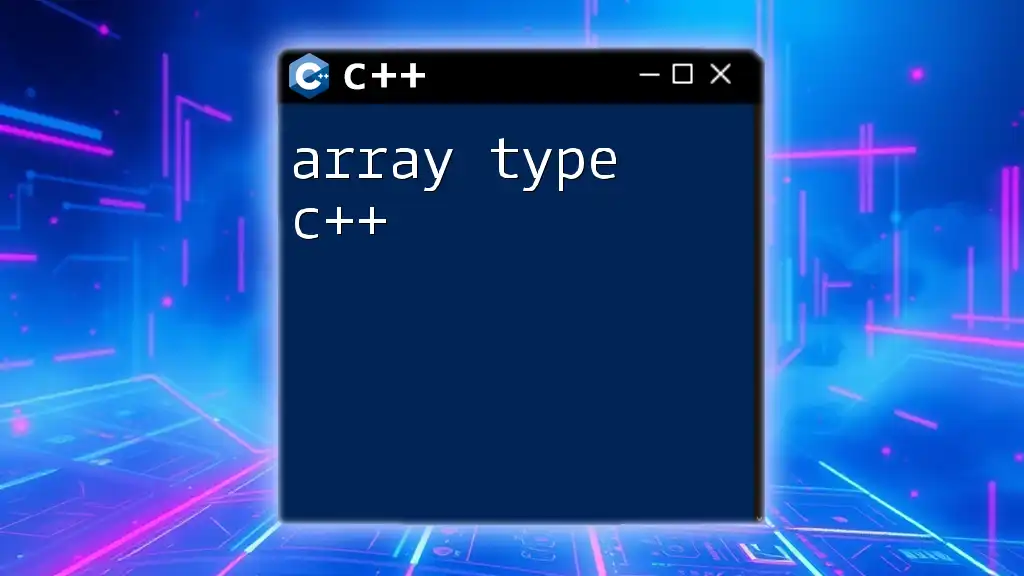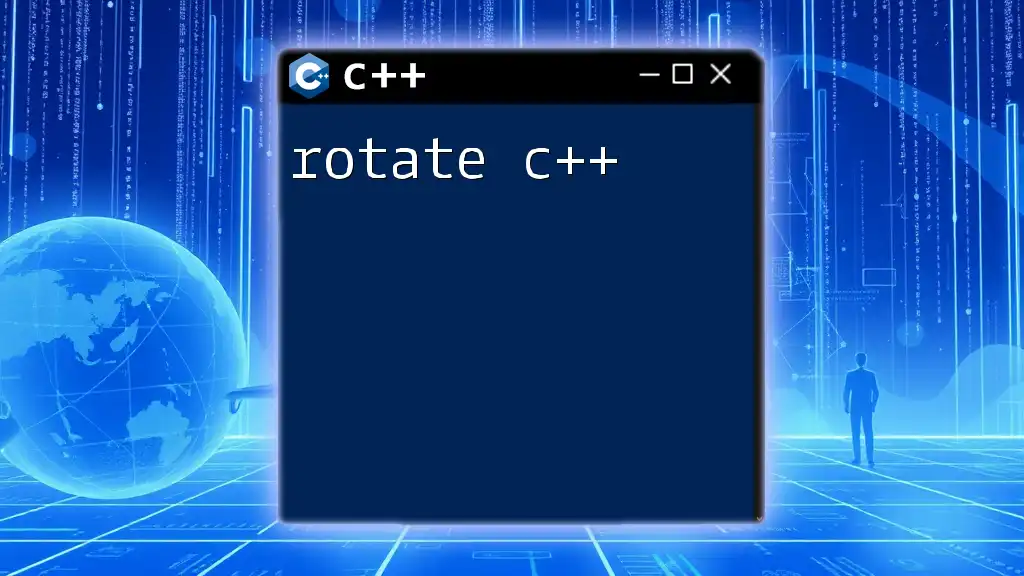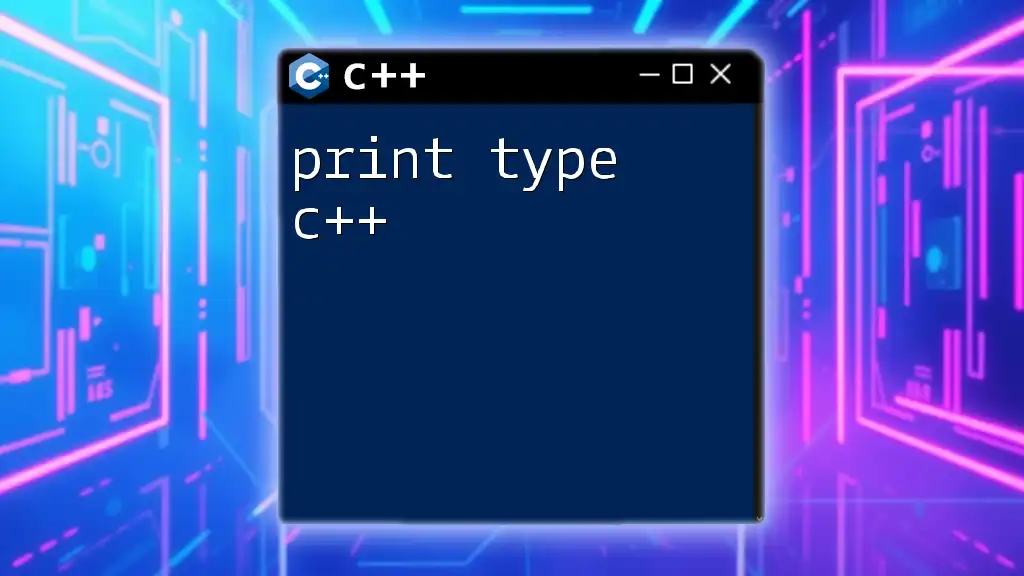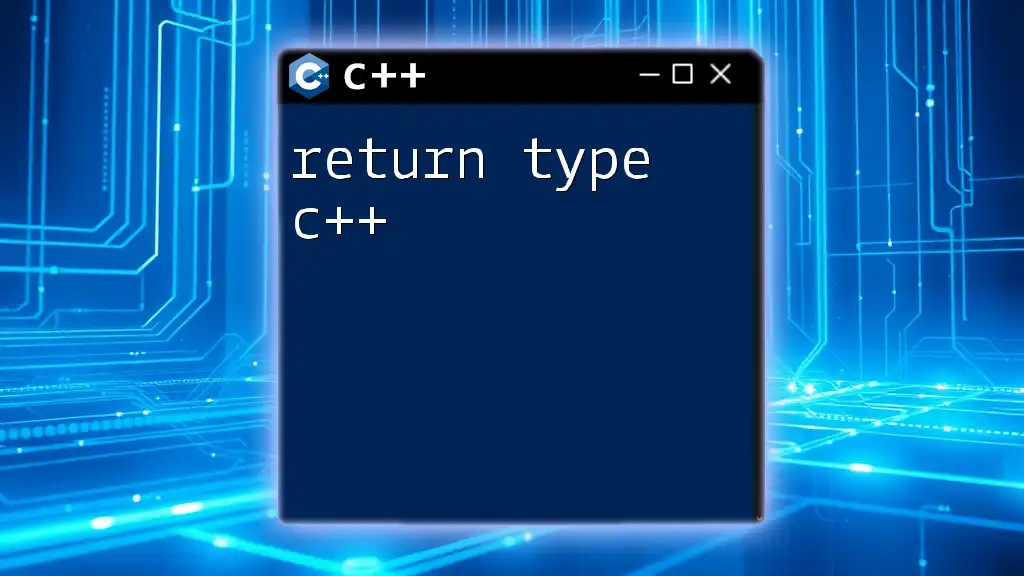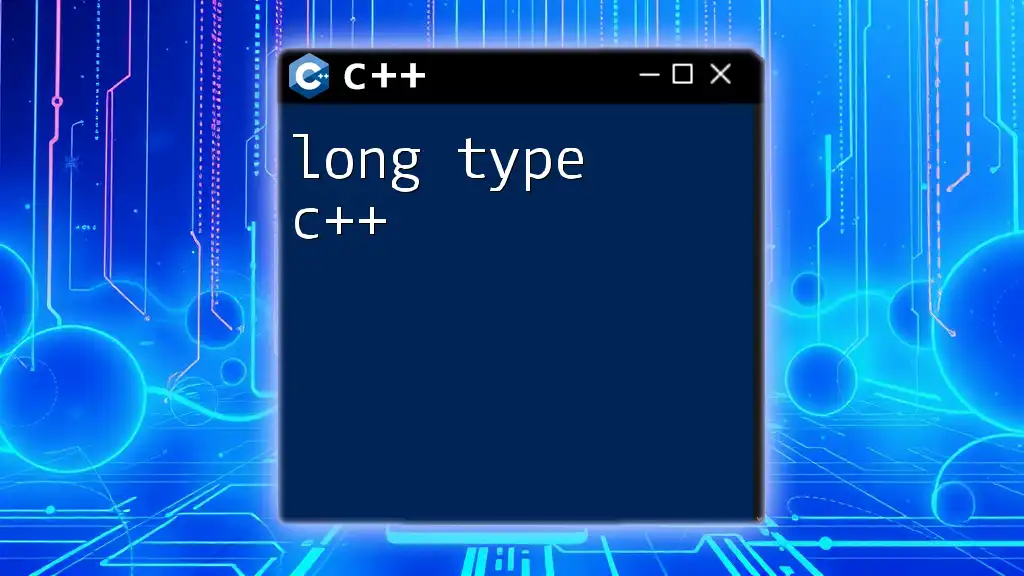The `auto` data type in C++ allows the compiler to automatically deduce the type of a variable at compile time, making code more concise and easier to read.
Here's a simple code snippet demonstrating the use of `auto`:
#include <iostream>
#include <vector>
int main() {
auto x = 42; // x is deduced as int
auto str = "Hello, World!"; // str is deduced as const char*
auto vec = std::vector<int>{1, 2, 3}; // vec is deduced as std::vector<int>
std::cout << "x: " << x << "\n";
std::cout << "str: " << str << "\n";
std::cout << "vec size: " << vec.size() << "\n";
return 0;
}
Understanding the `auto` Data Type in C++
What is `auto`?
The `auto` keyword in C++ serves as a type specifier allowing the compiler to automatically deduce the type of a variable based on the initializer expression. Introduced in C++11, it was designed to alleviate the burden on programmers by enabling them to write less verbose and cleaner code. Instead of explicitly declaring variable types, developers can simply use `auto`, making the code much easier to read and maintain.
The Necessity of `auto` in C++
Code Readability
One of the primary reasons for utilizing the `auto` data type in C++ is the enhanced readability it brings. By reducing the verbosity of type declarations, `auto` allows programmers to focus on the logic of their code rather than the syntactical intricacies of type declarations. For instance, when dealing with complex data structures like containers, explicitly typing the variable often results in cumbersome syntax that can distract from the code's purpose.
Type Deduction
The concept of type deduction is crucial to the `auto` keyword. It enables the compiler to automatically determine the correct type of a variable based on the value it is initialized with. This is particularly beneficial in templated scenarios where types could be intricate or nested. By leveraging `auto`, developers can write more flexible and maintainable code.
When to Use `auto`
When Types are Complicated
There are scenarios in C++ programming where explicit type declarations can quickly become unwieldy. For example, when working with iterators or function pointers, the required type can often be lengthy and unwieldy. Instead of this verbose declaration:
std::vector<int>::iterator it = vec.begin(); // verbose
You can simplify it dramatically using `auto`:
auto it = vec.begin(); // concise
This not only improves readability but also reduces the likelihood of introducing errors during type specification.
In Range-based For Loops
Using `auto` in range-based for loops is one of the best practices in modern C++. It enhances simplicity and clarity. For instance, suppose you want to iterate over a container without worrying about the exact data type of its elements. Here’s how `auto` simplifies that:
for (auto& element : myContainer) {
// operation on element
}
Here, `auto` automatically deduces the type of `element` based on the container's data type, making it easy to iterate through various data structures without needing to know their exact type upfront.
How `auto` Works
Type Deduction Rules
The rules of type deduction in C++ specify how the compiler interprets the type of a variable declared with `auto`. The compiler deduces the type based on the initializer provided at the point of declaration. Understanding how values are classified as lvalues and rvalues is essential because it can affect type deduction in some scenarios, such as distinguishing between references and values.
Types of Variables that can use `auto`
The `auto` keyword can be applied broadly across various types of variables, including:
- Local variables
- Function return types
- Lambda expressions
For example, here's a simple lambda function where `auto` is used to infer the return type:
auto add = [](int a, int b) {
return a + b; // type of the return value is deduced automatically
};
This use of `auto` leads to cleaner, more comprehensible code blocks.
Limitations of `auto`
Situations Not Suitable for `auto`
However, `auto` is not without its limitations. There are specific situations where it may not be the best choice. For instance, when the type is ambiguous, the compiler will fail to deduce the type accurately. Consider the following example:
auto x = { 1, 2, 3 }; // error: cannot deduce type for ‘x’
In this case, `auto` cannot deduce the type from an initializer list, thus resulting in a compilation error.
Non-Static Class Member Initializers
Another limitation is that `auto` cannot be used for non-static class member initializers until C++14, where it has become supported in certain scenarios. Thus, developers should exercise caution when using `auto` in class definitions and ensure they are aware of the applicable C++ standard.
Best Practices for Using `auto`
Readability vs. Explicitness
When deciding whether to use `auto`, striking the right balance between readability and explicit typing is crucial. While `auto` enhances clarity, overusing it in situations where the type is significant or not immediately clear can hinder understanding. A common guideline is to reserve `auto` for straightforward types derived from clear initializers while using explicit types in complex scenarios.
Using `auto` with Pointers
When working with pointers, `auto` can be particularly handy. For example:
int* p = new int(5);
auto q = p; // q is now of type int*
In this instance, using `auto` simplifies the declaration, allowing programmers to focus on the logic without getting bogged down by pointer syntax.
Performance Considerations
While there is often a concern about performance implications when using `auto`, in practice, there is little to no significant impact on both compile time and runtime. Instead, the benefits lie in the reduction of human error and increased clarity of the code. Manually typed variables can lead to inconsistencies, while `auto` enforces type safety through clear deductions.
Conclusion
The `auto` data type in C++ is a powerful feature that enhances code readability and maintainability while allowing for type inference in a clean and effective manner. By encouraging developers to adopt `auto`, the language promotes cleaner coding practices, enabling focus on logic and functionality rather than type specifications. Experimenting with `auto` in your own C++ projects can lead to clearer and more efficient code, making it a fundamental tool in any programmer’s arsenal.
Additional Resources
For those interested in deepening their understanding of the `auto` data type in C++ and modern programming concepts, refer to C++ standard documentation, books like "Effective Modern C++" by Scott Meyers, and reputable online courses that delve into C++ programming and best practices.







